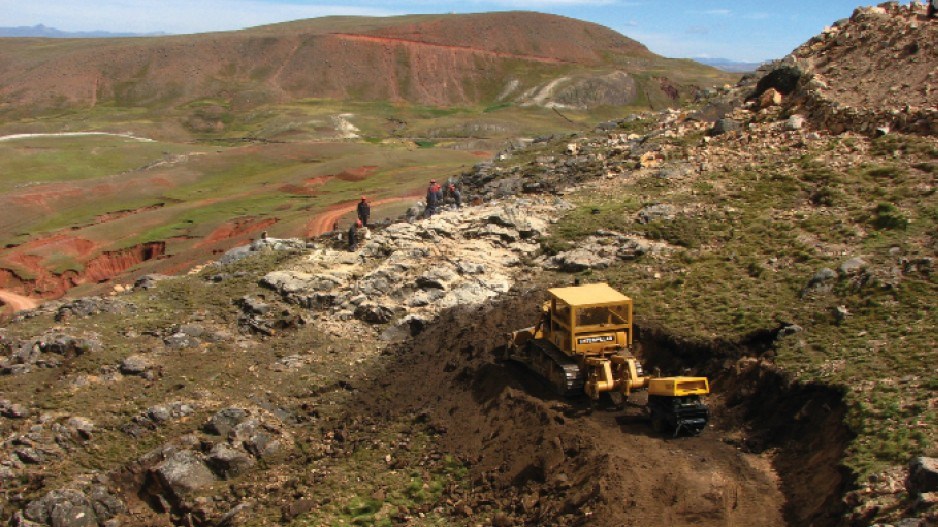Vancouver-based South American Silver Corp. (TSX:SAC), whose Bolivian mining concessions were expropriated in August, has given Bolivia notice that it will seek remedies under an international treaty if the dispute isn't resolved within six months.
Phillip Brodie-Hall, president and CEO of South American Silver, said using international arbitration is the only way the company can secure "a sensible outcome" following the expropriation of the company's Malku Khota silver-indium gallium deposit.
Brodie-Hall explained that the company's ownership structure allows it to seek protection under a bilateral investment treaty between Bolivia and the U.K.
Canada has no bilateral investment treaty with Bolivia.
Brodie-Hall said next steps for the company will depend on whether the Bolivian government decides to negotiate a resolution within six months or move to international arbitration.
"They've publicly said that they're not interested in doing that, but you never know – the closer it gets to the time, the more likely they are to do that because we understand that they don't much like being in the international arbitration process."
Brodie-Hall, who replaced former South American Silver president and CEO Gregory Johnson shortly after the expropriation, said he hasn't personally witnessed the degeneration of Bolivia as an attractive place for mining companies to do business.
But he offered, "With the [Evo Morales] government, nationalization of mining and oil assets is pretty much a matter of normal course of business."
Brodie-Hall characterized the jurisdiction as a "very difficult" place to do business.
"We go and spend a lot of money in a country like that in the hope of being able to develop a project that will be not only good for ourselves but good for the local economy and the local community and so forth," he said. "And then to get to a point where somebody in the country has decided that they don't want to be managed by 'transnationals' and that the only way to deal with that is to steal the property from us. ... We clearly feel very passionate about it, and I would be very cautious about doing business in the country again."
Last month, Bolivia passed a law that grants nature equal rights to humans.
Brodie-Hall said the so-called "Law of the Rights of Mother Earth," while unconnected to South American Silver's struggles with the government, will likely add to the costs and challenges of doing business in the country.
Gavin Dirom, president and CEO of the Association for Mineral Exploration BC, said Bolivia's actions will damage its comparative attractiveness to foreign investors.
"Whenever expropriation occurs without due process," he said, "no matter where this may happen, it sends a clearly unfavourable signal to responsible mineral explorers, developers and investors."




